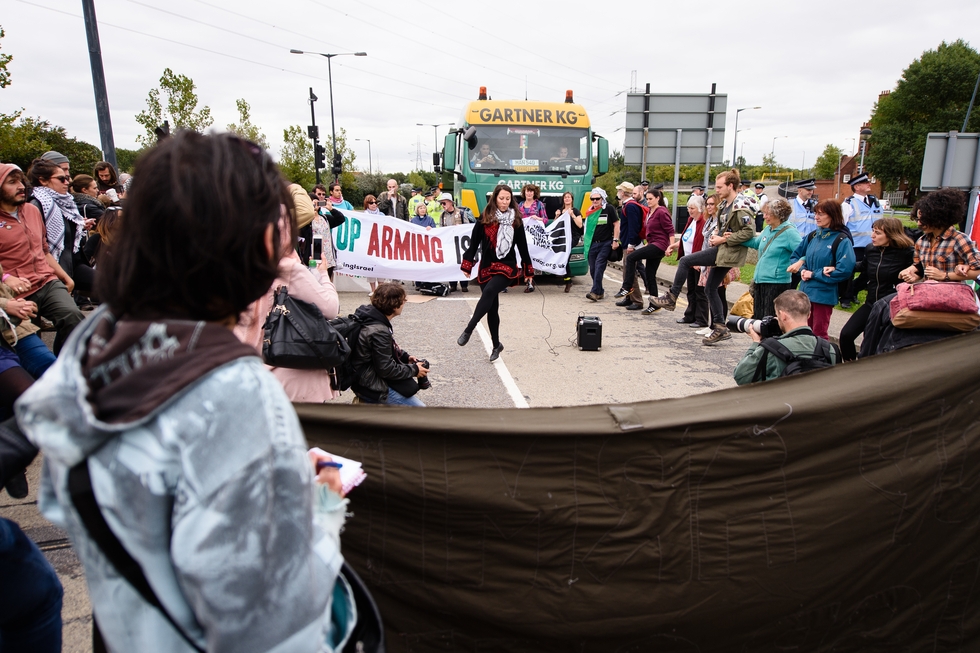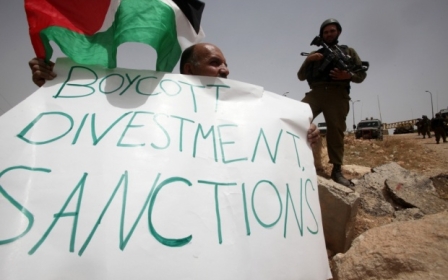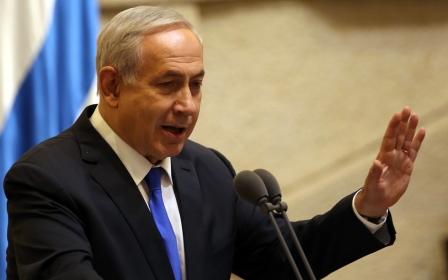UK to ban public sector boycotts of Israeli goods

British councils, the NHS and publicly funded universities face "severe penalties" if they institute boycotts of "unethical" companies or Israeli goods under controversial new rules to be outlined by the government this week.
"Locally imposed boycotts can roll back integration as well as hinder Britain's export trade and harm international relationship," the Cabinet Office said in a statement on Monday.
"Town hall boycotts undermine good community relations, poisoning and polarising debate, weakening integration and fuelling anti-Semitism," it added.
The move follows a series of local boycotts in recent years that have angered Israeli authorities.
Last December, the Department for Local Government told the Press Association news agency that the laws would change to ensure the protection of taxpayers' and the UK's best interests.
“Councils should not be using pensions and procurement policies to pursue their own boycotts and sanctions against foreign nations,” a spokesman said.
The proposed rules are due to be announced later this week by Cabinet Office Minister Matt Hancock during a visit to Israel, the government statement said, without saying what penalties may be imposed.
"We need to challenge and prevent these divisive town hall boycotts," Hancock was expected to say.
The measure would apply to the public sector as a whole, including the National Health Service.
The only exception to the boycott ban, which also covers action against companies involved in the arms trade, fossil fuel and tobacco, would be official sanctions agreed by the central government.
In 2014, Leicester City Council instituted a boycott on goods made in Israeli settlements in the occupied West Bank.
Aparthied error
A Scottish government notice to local councils in Scotland also "strongly discourages trade and investment from illegal settlements".
The European Union last year backed the labelling of products from Israeli settlements, in a move that Israel condemned as discriminatory and warned could harm the peace process with the Palestinians.
The Cabinet Office said it continued to support labelling "to ensure that individual consumers are able to make informed choices before they buy".
But an opposition Labour Party spokesman said the boycott ban was "an attack on local democracy".
"This government's ban would have outlawed council action against apartheid South Africa," he said.
“People have the right to elect local representatives able to make decisions free of central government political control," the spokesman said. "That includes withdrawal of investments or procurement on ethical and human rights grounds."
Amnesty International's UK economic relations programme director Peter Frankental also condemned the plan.
"Where's the incentive for companies to ensure there are no human rights violations such as slavery in their supply chains when public bodies cannot hold them to account," he told the Independent newspaper.
The Independent also quoted the head of the Palestine Solidariy Campaign Hugh Lanning, who condemned the government plan.
"It seems that for this UK government, whatever crimes against international law Israel commits, having a military ally trumps the rights of their own citizens and institutions in this country to support human rights,” Lanning said.
New MEE newsletter: Jerusalem Dispatch
Sign up to get the latest insights and analysis on Israel-Palestine, alongside Turkey Unpacked and other MEE newsletters
Middle East Eye delivers independent and unrivalled coverage and analysis of the Middle East, North Africa and beyond. To learn more about republishing this content and the associated fees, please fill out this form. More about MEE can be found here.




